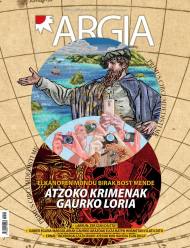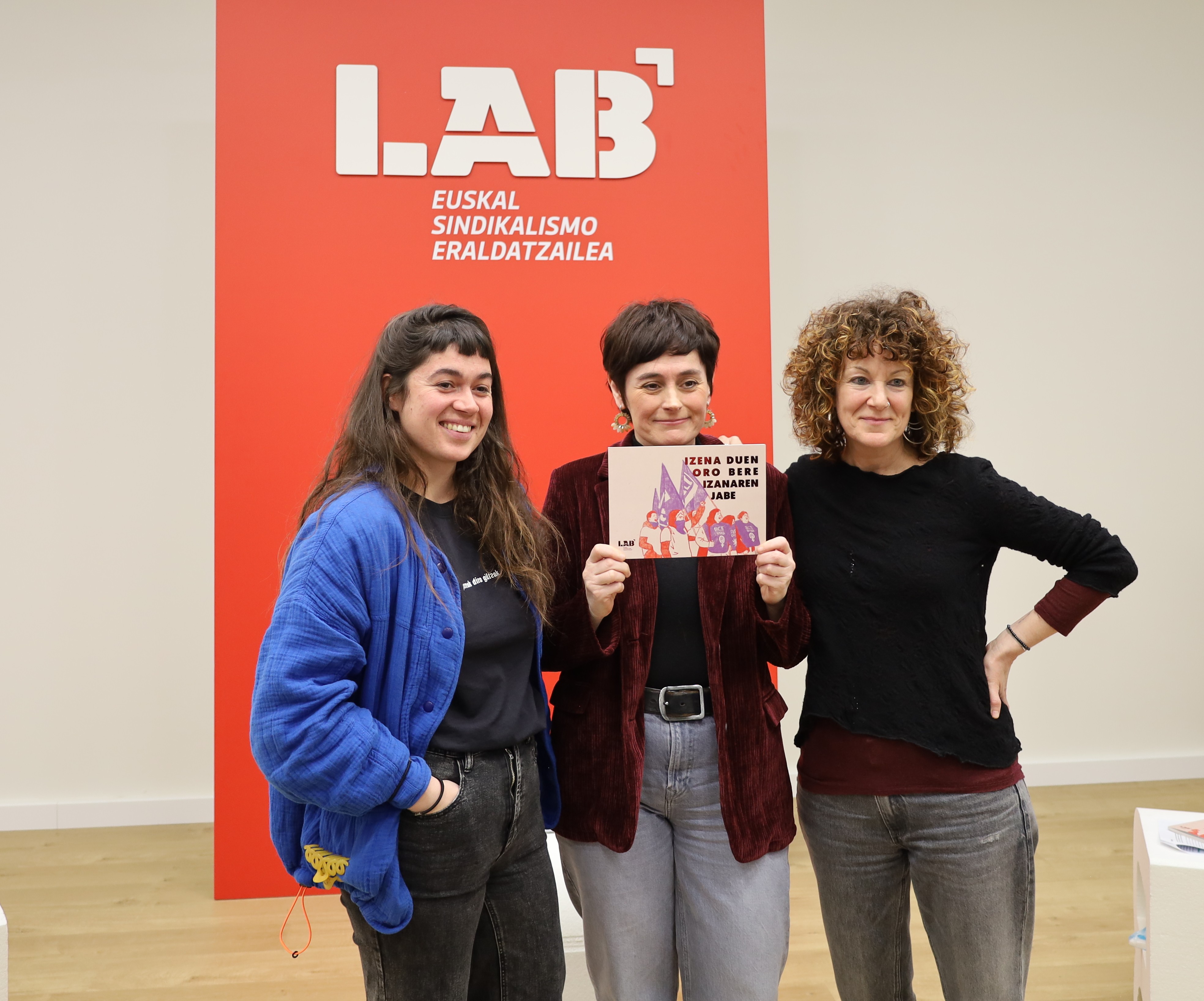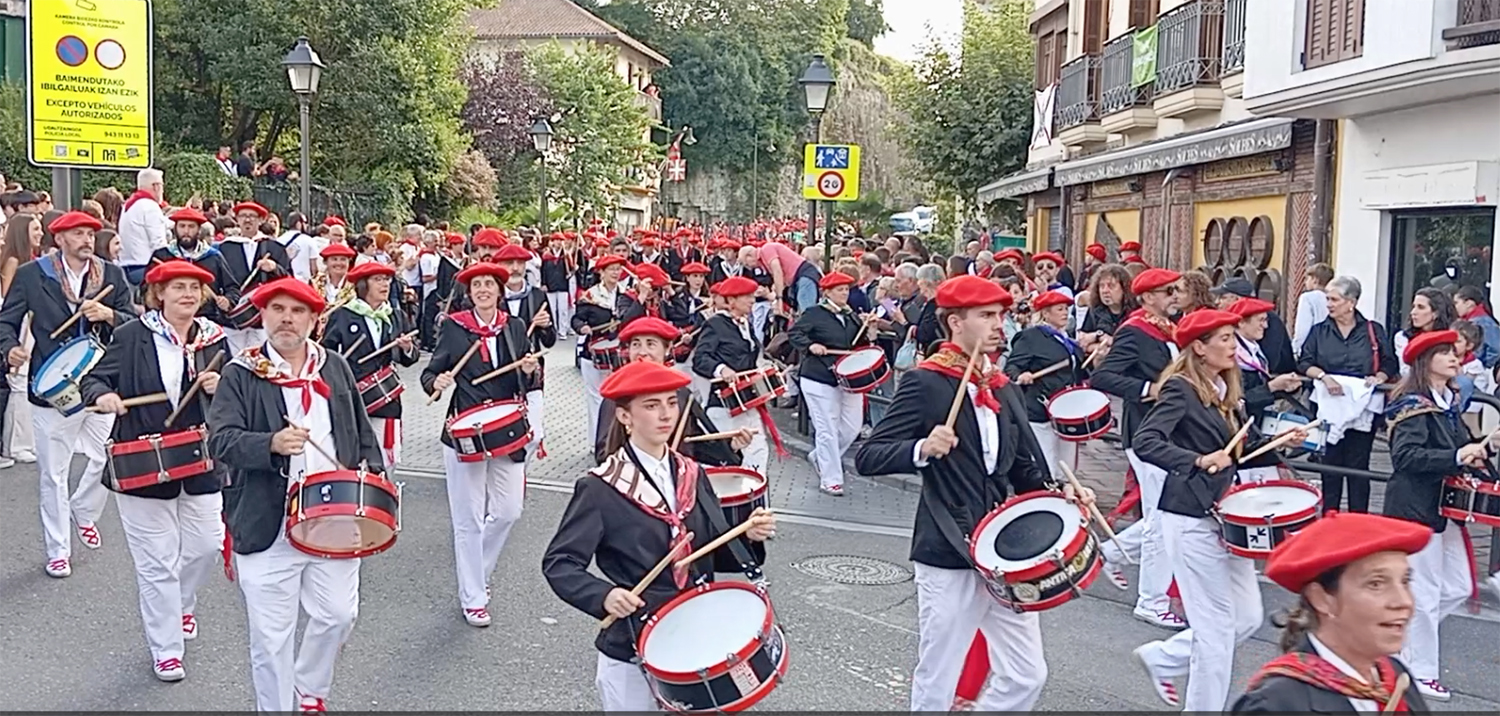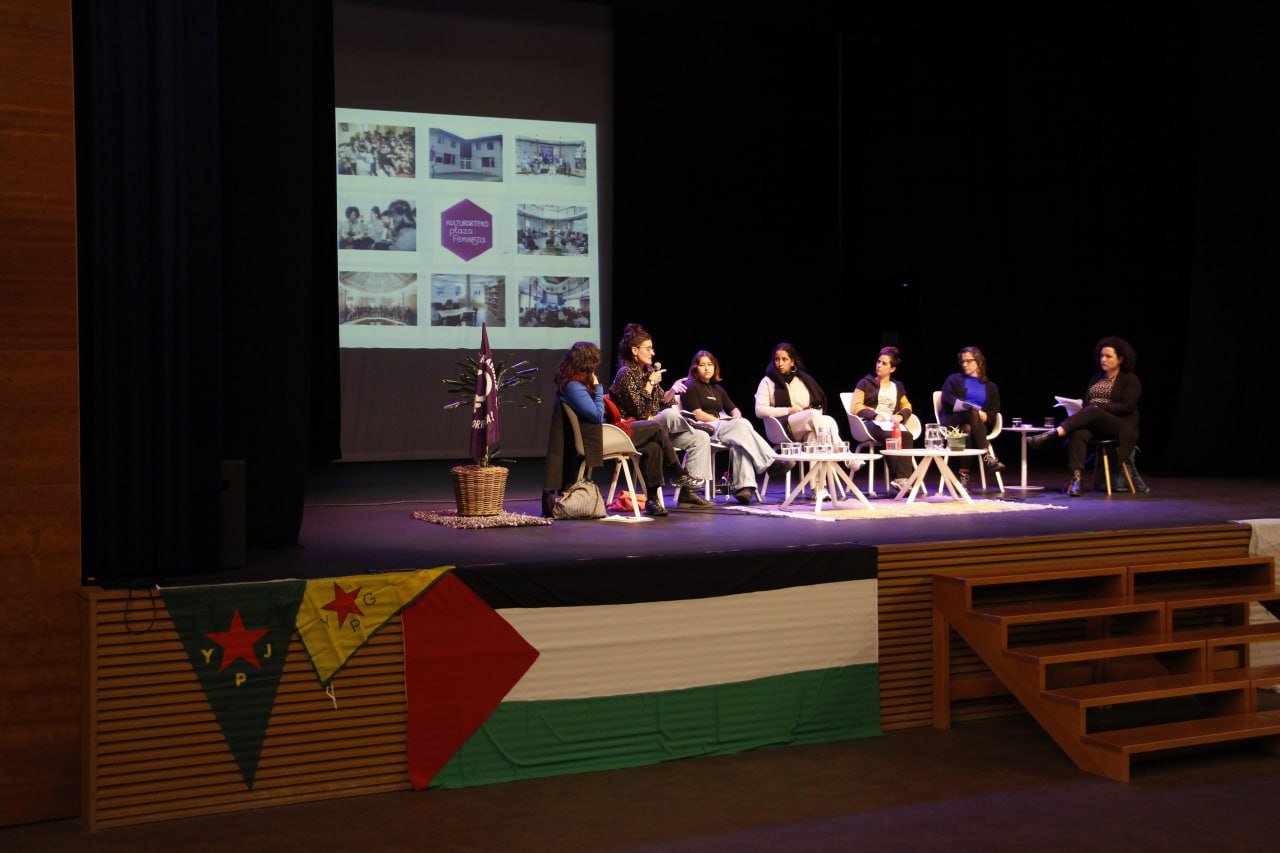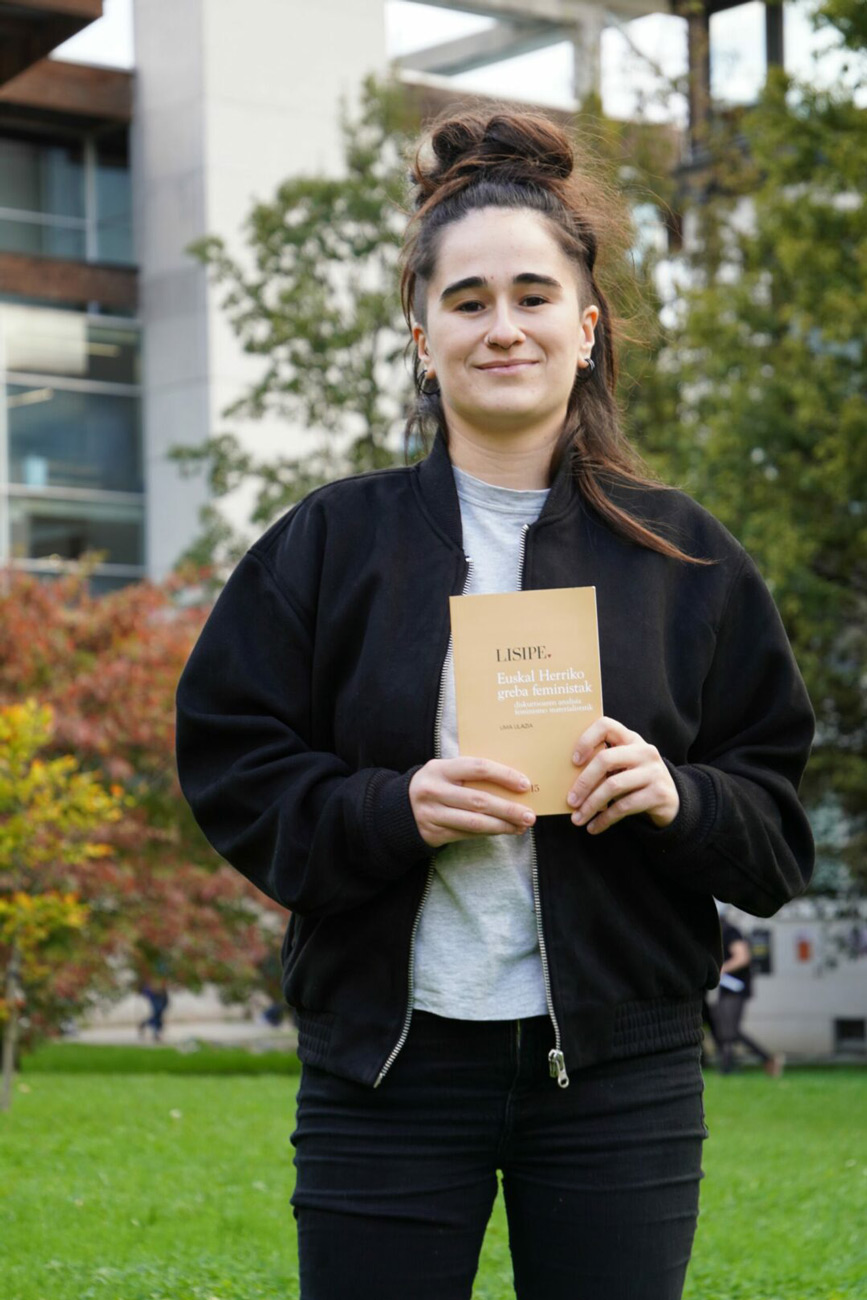Ondarroa Party Removes Purple Waves
- With summer, the parties of neighborhoods, towns and cities have come. Although they are often perceived as an opportunity to escape the rhythms and routines maintained throughout the year, parties are not a place of escape or peace outside society. The parties also reflect conflicts and social inequalities, so many times they are not a source of pleasure and joy for everyone.

Feminist researcher Miren Guilló explains in her work Fiestas, gender relations and feminism that “we are bodies and relationships woven from subversion and pleasure at parties. But the party, besides being a tenderness that wears through the eyes, is an opportunity for pain and crying.” And that is that, far from being islands where nothing other than pleasure or good mood has room, parties are a faithful reflection of society, in which, among other things, the personality, ideology and values of society are reproduced, as well as the relations of power. This last aspect, with the excuse that “everything is free” at parties, is frequently intensified. One of the most striking consequences is the sexist aggressions.
Faced with this reality, there are many people who are working for an egalitarian holiday. The most commonly used strategies in this elaboration are, perhaps, the protocols to deal with sexist aggressions, but there is another tool that has been extended in recent years to different places in the Basque Country: Purple Brigades.
The Purple Brigades are based on the feminist self-defense attitude advocated by the feminist movement. Lasarte-Oria, Ermua, Villabona-Amasa, Laudio, Pasai Antxo, Zaldibar, Antzuola, Irura, Durango and Ondarroa are some of the localities that have launched the Purple Brigades. They adapt to the reality of the population in question, so their functioning is different: some are active in a festive atmosphere, attentive to any aggression that may occur; others, for example, offer protection to women* to return home. In order to make an idea about how this tool works, we have talked about Ondarroa’s experience with Alaitz Monasterio and Naroa Argoitia, members of his feminist movement.
“Billurrak guaz jai!”
Last year, the Purple Brigades emerged in Ondarroa with the aim of continuing to work for egalitarian festivities and taking another step. The dynamic, initially driven by the Equality Area of the City Hall and the Casa de las Mujeres Etxelila, after receiving a training on male violence led by Emagin, began to function autonomously, which later became the driving group of the Purple Brigades. The first step was to determine what kind of Purple Brigades they wanted, and to carry out this work, Monastery and Argoitia point out that they focused on the experiences of other peoples. Later, his intervention was planned for the patron saint festivities of Andra Mari.
The functions of the brigade members were to respond to sexist aggressions, to report on them and to offer protection and attention to the assaulted. “We wanted to be a referent, so that in case of aggression the attackers could go to where, without fear of being tried” say Argoitia and Monasteries. To obtain this reference, in order to facilitate the identification of the brigade members, they decided to wear a purple scarf. By the time the day came to go out in the street under the slogan “Billurrak guaz jai!”, about 80 people had distributed the purple scarf.
At Ondarroa they warned that sexist aggressions are the main obstacle in building spaces for women* to feel free
Despite the influx of people, two functionally different groups were formed. On the one hand, a motor group composed of ten women who received training and who had “a minimum of training” to intervene in the face of the aggressions. On the other hand, there were citizens with “awareness of the issue”. The two members have explained that, despite being vigilant about any possible attack, the decision was taken by the motor team, but they have not been able to avoid it.
In addition to the responsibility of responding to the attacks, in order to make a more real picture of the festivities of Andra Mari, they registered the aggressions that occurred during the festivities. For this purpose, in addition to filling in the registration sheets of the aggressions, a mailbox and a complaint email address have been made available to the women. These resources sought to guarantee confidentiality and anonymity when denouncing the aggression, in order to break the aggressor's tendency to carry the burden in secret.
On the other hand, they have stressed that they have also sought to socialize the theme of the sexist aggressions at parties and to convey to the people the following message: “We all want to have a good time, let’s think about how to get it.” In the festive sphere, they wanted to alert that sexist aggressions are the main obstacle in the construction of spaces where women feel free. “People were curious about what the Purple Brigades were and what their role was,” they say. “At first, believing it was a handkerchief to reclaim an egalitarian holiday, many wanted to dress it,” explained Argoitia, who added that it was not a handkerchief to make a claim and that it was an opportunity to explain what asked to dress it. “For both good and bad, we repudiate the debate and give way to awareness,” both agree.
They value experience positively. They believe that putting themselves at the centre of “self-care” throughout the process generated a nice experience. The experience made Argoitia feel “the feeling of living parties from another place”, highlighting “the feeling of moving from the role of victim or assaulted to being an active woman and changing things”. In addition, they have ensured that through the process many women from the locality have met and contacted the network. “And that gives you another strength,” said Monastery.
Prospective approach
During his performance as Brigadier More, they realized some resistance that emerged in the people, such as the Machist rumors that legitimize the Machist discourse. Thus, in the previous months, work has been done against rumours to identify and disarm them. They have recently been forced to implement what they have learned, as there have been many rumours about the rape that has taken place in the people. Given the evidence of the strength of the rumor and the damage it causes, they have stressed that “we are closer and closer to the aggressors, the questionings are becoming stronger.”
The last aggression in the people has been given full priority, so it has not yet been decided whether the Purple Brigades will continue in the festivities. In any case, they are responding to the aggression and extending their support to the assaulted, both of which are the functions of the Purple Brigades. According to Argoitia, it may be forgotten that feminist self-defense will take the streets this year, regardless of whether or not the brigades are organized in Andra Marieta: “With this we have begun to articulate ourselves in the people as a feminist movement.”
This wedge that the announcement on the radio Euskadi to replace the bathtub with a shower encourages the commencement of the works in the bathroom of the house. A simple work, a small investiture and a great change are announced. There has been a shift in toilet trends and a... [+]
Zalantza asko izan ditut, meloia ireki ala ez. Ausartuko naiz, zer demontre! Aspaldian buruan dudan gogoeta jarri nahi dut mahai gainean: ez da justua erditu den emakumearen eta beste gurasoaren baimen-iraupena bera izatea. Hobeto esanda, baimen-denbora bera izanda ere, ez... [+]
Goldatz talde feministak antolatua, ortziralean, urtarrilaren 3an, Jantzari dokumentala proiektatuko dute Beralandetan (17:30ean) eta biharamunean, urtarrilaren 4an, Berako bestetako tradizioak aztergai izanen dituzte Maggie Bullen antropologoarekin leku berean (10:30).









